About
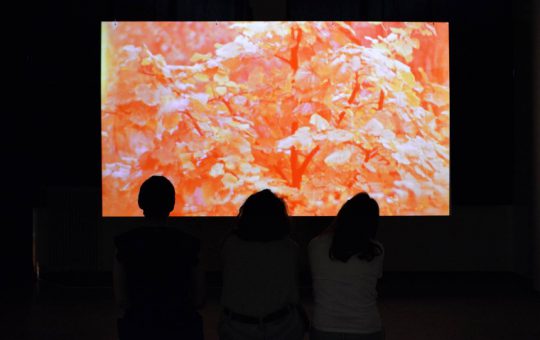
ABOUT US
State of Concept Athens is a non-profit contemporary art institution founded in 2013 by art critic and curator iLiana Fokianaki and based in the neighbourhood of Koukaki at the centre οf Athens. It is an independent platform that fosters the appreciation for local and international contemporary art and the growth of artistic and curatorial practice.
State of Concept hosts exhibitions, public programs, events and workshops, and offers free one-to-one tutorials to artists and students throughout the year. It has been collaborating with institutions abroad, with exhibitions and other parts of our program traveling to Amsterdam, Ljubljana, New York, Paris, Rotterdam, among other places.
OUR CORE MISSION
The institution, since its inception, has been looking into formations of power in relation to geopolitics, national identity and cultural and anthropological histories, so as to comprehend, reformulate and eventually deconstruct the ideologies that maintain profound power imbalances and injustices in our world today.
Operating as a bridge between Athens and the international contemporary art scene, our interest is to bring to the fore artistic and curatorial practices that address and question the current social, economic and political phenomena of Europe and beyond. We do so by looking into these thematics from the location of Greece, existing literally and metaphorically on the borders of West and East. Facing still a financial crisis that has altered its societal fibre, the country remains an urgent location from where cultural practitioners can rethink the Western canon and its constructs.
By looking at the institution as a form of power, we aim to examine institutional critique, from within the structures of the institution. Building on the idea of the “state” and its power structures -often inherited by art institutions- in State of Concept we develop our thematic chapters in the form of “ministries”, “departments” and “bureaus”. In an effort to address and redefine the functionality and grammar of institutional building and its white Western, Eurocentric legacies, we run a program that responds to both the precarious conditions of peripheral localities and the global sociopolitical realities of contemporaneity, from a feminist and intersectional perspective.
TEAM
Founding Director: iLiana Fokianaki
email: [email protected]
Production Manager & Press Officer : Konstantina Melachrinou
email: [email protected] or [email protected]
Printed matter design:
Rana Karan
Identity and website design:
Studio Remco Van Bladel & Studio RGB
Interns spring – summer 2024:
Elisa Cantisani
Nasia Papavasiliou
Camiel Vandenbussche
We thank the following previous team members who offered their knowledges and time:
Electra Karatza, production assistant (2020-2021), Leda Markaki (2019 – 2021), press & pubic program, Maria Adela Konomi, production manager (2017-2019), Myrto Katsimicha, production assistant (2015-2017), Hristiana Stamou, production assistant (2014-2016), Agapi Harmani, production assistant (2014-2016).
Consultations
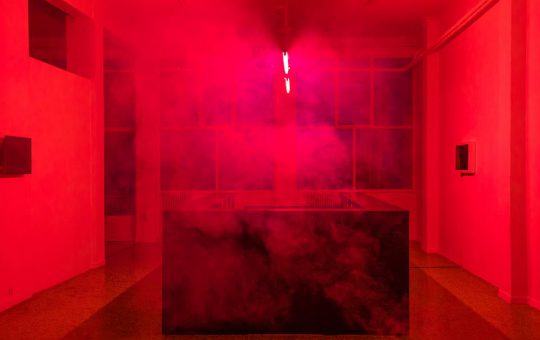
State of Concept has been providing pro bono advice and one-to-ones to art students and artists via appointments since 2013. We have assisted so far more than 1000 young professionals and students from Greece and beyond.
The consultations last 40 minutes and take place at the institution from Wednesday to Friday, between 5-7 pm. Bookings should be made in advance, due to limited availability.
To book an appointment please fill out our form, here.
Concepts
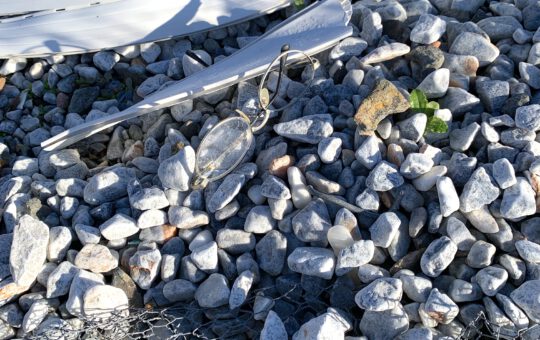
Truth will not take Care of itself (2023 – ongoing)
Can the art institution become a care-taker of truth? Continuing our work through the research platform The Bureau of Care, that examined the ethics and politics of care and how they can inform cultural practice, State of Concept is looking into the way two crises unfolding in tandem these last years are presented in the mainstream: the climate and what became known as the refugee crisis. We will be investigating how they are both affected by new technologies of surveillance, developed within and outside of Europe. Particularly when this last decade we observe that data, information and manipulation play a substantial part in major political changes and interventions.
The two year-long program will investigate the relation between social and environmental justice, and how they are shaped by surveillance technology, especially in developing economies like Greece and other countries. The project arrives as a response to what we see as an emergency: the corrosion of truth and the major discrepancies of states: while fake news has a long history, today the bio-political methods of power, via big data and surveillance technology, manipulate knowledge production and the understanding of reality in ways and speeds before inconceivable. This manipulation is most often related to both the fabrication of alternative truths for both environmental catastrophe and the refugee crisis, many times built through a weaponisation of nature- presented as the culprit instead of state necropolitics or climate change denial.
In many countries around the world, Greece included, democratic checks and balances are increasingly absent, due to a lack of understanding of technology by bureaucrats, but also due to a rigged judicial system that does not act when it comes to major breeches of individual citizen (and migrant and refugee) rights. In some cases, the judicial system is instrumentalised by the state to criminalize those that speak truth to power. In Greece, it persecutes activists in the fields of environmentalism and human rights, and in contrast protects through inactivity, those that pollute, extract, violate and survey.
The current wire-tapping scandal involving some EU countries, among them Greece, where dozens activists and journalists were under surveillance via hacking spyware Predator, is an example of how surveillance technology is used against those that aim to safeguard truth: in the case of Greece activists of civic society and journalists. The scandal prompts us to ask:
What can an art institution do, when it claims to care? What should the role of an art institution be, when the public sphere is shaped by racist discourse, fake news and alternative facts, poisoning our reality and jeopardizing our future? In an age of mistrust, surveillance and disinformation, how do you gain back people’s attention to the multiple crises we face? State of Concept is aiming to become a vessel of hard facts and precarious testimonies, in a sea of alternative truths. How can we “re-invent life through a hopeful futurity”, in the words of T.J. Demos in order to avoid the possibility of de-futuring all life?
“Truth will not take Care of itself”, discusses the current questions that arise from the relationship between social and environmental justice inspired by the sociopolitical problematics that arise in Greece today and the responses of civic society to them. We are proposing the institution as a place where misinformation and right-wing propaganda can be contested, through the presentation of informed data and facts via a people’s forensics. The program will unfold in two phases, with the first launched in March 2023.
Part 1
State of Concept since 2021, invites curators, artists and cultural collectives to curate a program: this year we are honored to be working for the second time with Forensic Architecture (FA) and its Berlin-based sister agency Forensis. FA/Forensis presents a new investigation, engulfed by a program revolving around three thematics of investigations they have been working on the last seven years, presented from March 2nd until June 10th. The research will operate as a point of reference for the whole program. Departing from themes that relate to what became known as the refugee crisis and the way surveillance technology and necropolitical tech is related to it, scholars, activists, artists and theorists are invited to think together how to take care of truth in a program that will unfold in the coming months. State of Concept with Forensic Architecture/Forensis and Rosa Luxembourg Stiftung office in Greece, will be working with affected communities, local activists, legal and investigative teams.
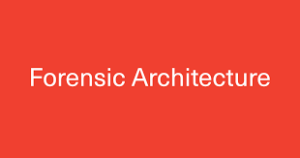

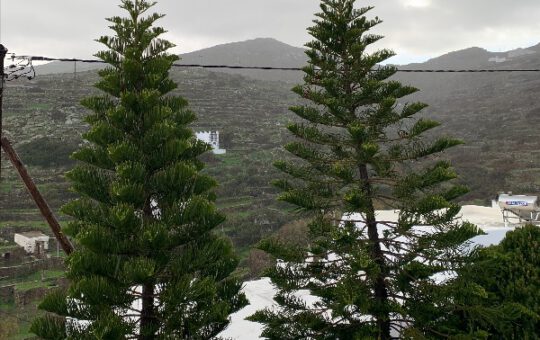
Coalition of the Care-full (2022-ongoing)
‘Coalition of the Care-full‘ had its soft launch with the solo exhibition of artist Irini Vourloumis (1941-2021), who had been working for more than fifty years with little public exposure of her work. The exhibition operated as a simple gesture of care, focusing on highlighting the care-full practice within Vourloumis’s work while aiming to re-think what type of care can be enacted towards the work of art after the end of an artist’s life.
Our first collaboration begins with Athenian collective Temporary Academy of Arts (Y.Ioannidou, E.Karaba, V.Vlachos, D.Zefkili), invited to ‘take over’ the artistic directorship for 2022 to develop Waste/d Pavilion. The pavilion will unfold through a series of “episodes,” focusing on the relation between waste and labour, the body, ecology and language. Artists and researchers have been invited to present different conceptualisations of the notion of Waste/d.
The ‘Coalition of The Care-full’ will also be developing enquiry lines for a ‘care-full’ future, made all the more urgent in light of the current energy crisis augmented by the brutal invasion of Russia in Ukraine.
The first part of our parallel program that starts in the Fall of 2022 is entitled ‘Care-full Growing‘. It aims to visit modes of practice that propose formats that challenge the current model of turbo-capitalist growth and two of its aftermaths: energy extraction and food scarcity. Inviting scholars, activists, artists and curators that discuss concepts of ‘de-growth’, the program will attempt to map ways of tackling these questions. It will further embark on the ethics of food, working with Food Art Research Network, a wide international network of artists that engage with the politics and aesthetics of food. It will also attempt a mapping of the power of flora and plant knowledge in Greece, in relationship to toxicity, food scarcity and security, developed in collaboration with food researcher and chef Christina Kotsilelou, as well as agronomers and environmental lawyers.
Lastly, the Coalition of The Care-full aims to address the implications of the power structures of art in legitimizing and normalizing toxic agents, starting with a presentation of a code of conduct titled “The Ethics of Collecting,” written by a collective of collectors, which will be central to a panel discussion in Athens on the 26th of April 2021 hosted in collaboration with the National Museum of Contemporary Art (EMST).
The programme “Coalition of the Care-full” is part of the project European Pavilion, launched by the European Cultural Foundation, and developed in partnership with the Camargo Foundation, the Kultura Nova Foundation, and Fondazione CRT, as an initiative that supports and promotes artistic projects that imagine desirable and sustainable futures for Europe. In 2021, seven arts and cultural organisations have joined this new initiative: ARNA (Sweden), Brunnenpassage (Austria), INIVA (UK), OGR Torino (Italy), State of Concept (Greece), Studio Rizoma (Italy) and L’Internationale (Ljubljana, Belgium, Netherlands, Spain and Poland).
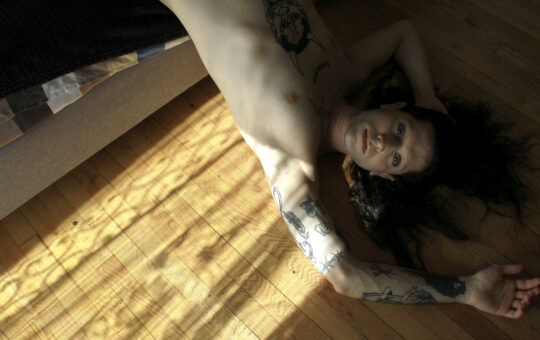
BONA-FIDE (2021-ongoing)
A new series of exhibitions entitled Bona – Fide and dedicated to contribute to the promotion of young Greek and international artists and critics/curators.
bona fide
/ˌbəʊnə ˈfʌɪdi,ˌbəʊnə ˈfiːdeɪ/
adjective: bona fide;
genuine; real.
“she was a bona fide expert”
real not false:
“Make sure you are dealing with a bona fide company”.
legal or honest:
“bona fide commercial transactions”
noun
good faith; absence of fraud or deceit; the state of being exactly as claims or appearances indicate:
“The bona fides of this contract are open to question”.
the official papers, documents, or other items that prove authenticity, legitimacy, etc., as of a person or enterprise; credentials:
All our bona fides are on file with the SEC.
The term bona-fide literally means in good faith, however it has various usages today. In a legal framework it is used to represent something that is presented in honesty, showing legality and good faith. The most common use of the phrase is to discuss something that we consider authentic. Inspired by this terminology, we present through this new series of exhibitions the practices of young artists, commissioning young critics/curators to write a new text on their work, aiming to strengthen the dialogues between young practitioners and to create a new space for the production of new discourse on contemporary art in Greece and beyond.
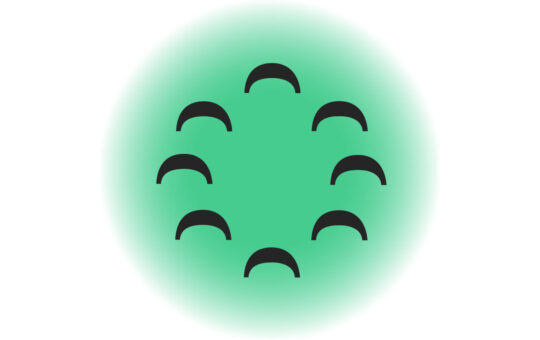
The Bureau of Care (2020-ongoing)
The diminishing of care in all facets of human life has been one of the major effects of neoliberal austerity policies, that was made even more visible during the global pandemic of Sars-Covid19.
These last decades neoliberalism has capitalized on the individualist notion of care, widely promoted as “self-care,” through an industry with billions in revenues. By “leaning-in” and taking care of oneself, contemporary subjectivities of the so-called “developed” world are tasked with the care of their overworked bodies, but are less and less interested in the wellbeing of bodies that are outside of the immediate realm of their family, class, working environment, neighborhood, city, country.
Care—and its ethics and politics—has been a subject matter the art world is concerned with. The global pandemic has made it all the more urgent. But is it a real concern that will lead to change in the ways we operate in our institutions and working relationships? How can care – if studied care-fully – provide transformative responses to the various problems that art institutions have been facing? Why are contemporary art institutions keen to talk about care, when they have been so care-less themselves? How can an art institution embody and practice the knowledge and the politics of care in a meaningful way?
A global pandemic demands a move from institutional critique to institutional transformation. From working towards making inequalities visible, it is now time to actually change our institutions, building on feminist, queer and black critique and demands for the redistribution of care. Aiming for the futures of care-ful practice, we wish to act on the possibilities enabled by the voices that speak from legacies of countless forms of collective care: healers, care workers, mothers, social workers, educators, cultural workers.
The Bureau of Care gathers artists, activists, writers and social workers to script and visualise the foundations for a European post-pandemic politics of care. Through the pandemic we have become even more aware of the truly essential workers: nurses, cleaners, educators, cultural workers, and others. Based on the values they represent, the Bureau will develop a handbook, exhibition and series of gatherings that propose the ideas and forms that make a new politics of care imaginable and actionable.
The Bureau of Care will consist of three components: a series of gatherings (online & physical), a handbook and a physical bureau. The handbook is essentially the script through which we will gather contributions of artists, activists, writers and social workers, to define the pillars—in words and image—of the post-pandemic politics of care we aim to bring into being. We will ask contributors not simply to reflect on what defines care, but for actionable forms and practices, ways of being and organizing, for the world [unfolding before our eyes. The handbook will be a physical publication.
The bureau will manifest as a digital platform on one hand and as a physical bureau in State of Concept Athens and other institutions. On both its physical and virtual locations, we will translate the various actionable propositions gathered in the handbook, into a mapping of a “how to” of care, as an on- and offline exhibition of ideas and imaginaries. The Bureau of Care will simultaneously be the space for gatherings: a place where we assemble within the mapping of new collectivities of care.
The project is realised in collaboration with various institutions, organisations and individuals such as WHW Akademjia, Framer Framed Amsterdam, Latvian Center for Contemporary Art, Kunsthalle Wien, Arts of the Working Class, Open School for Migrants in Pireaus, Melissa Center for Migrant Women, Feminist Research Group a.o.
The Bureau of Care is realised under the “Solidarity Grant” of the European Cultural Foundation.
More on the Bureau of Care here
After a year of research The Bureau of Care continues its activities, working towards a new program in collaboration with local and international collectives, groups, initiatives and (cultural) workers.
The second stage of the program is entitled ‘Coalition of the Care-full‘ and will run for the next three years. Please visit the separate section in our concepts section.
SEE ALSO:
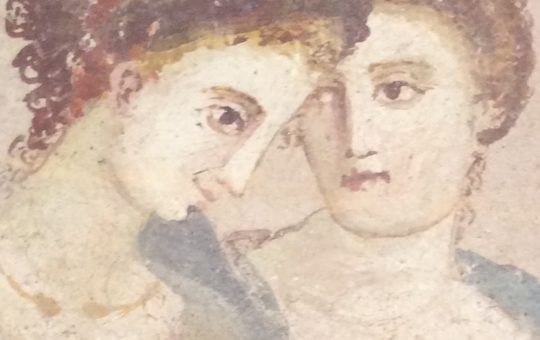
Gossips(2020)
Gossips: Re-claiming the words used to define women
The new chapter of programming that commences this September is entitled “Gossips” and is inspired by the 2018 book of Sylvia Federici, entitled Witches, Witch-hunting and Women. This program aims to look at a particular concept -and chapter- of the book that focuses on the term of gossip, and how from a positively associated term, used to describe primarily the comradeship and the creation of a support system among women through meetings and discussions in the home and outside of it, it has today been imprinted in our consciousness with its contemporary meaning, which carries a negative connotation: that of a person transferring rumours and news and talking behind people’s backs. As Federici clarifies at the beginning of that chapter :
“Tracing the history of the words used to define and degrade women is a necessary step if we are to understand how gender oppression functions and reproduces itself. The history of “gossip” is emblematic in this context”.
Silvia Federici, On Witches, Witch-hunting and Women, 2018, p.35
With an anti-feminist discourse coming from all aspects of conservative voices of society, with anti-abortion laws being re-introduced and women’s rights -defended for decades- contested by far-right politicians, it is extremely crucial in 2020, to address the current status quo in relationship to women’s oppression and even more so, address it through the sphere of culture.
This series of programming begun as a curated lecture series by iLiana Fokianaki, for the cultural institution Het Nieuwe Instituut in Rotterdam, the Netherlands between fall 2019 and summer 2020 (still unfolding due to the COVID19 crisis). The theme will be now developed from September 2020 onwards at State of Concept Athens and aims to bring women together, to re-generate and re-perform the original concept of “the gossip” as a support structure for women’s ideas, thinking processes and exchanges. It also wishes to collectivise feminisms discourses and create a platform through which there can be new utterances to counteract and address anew all the words used to define and degrade women (Federici) and deconstruct and unfold them. Moreover, it aims to offer an open dialogue with its audiences, through case studies, oral testimonies and histories and sharing of non-linear knowledges, breaking epistemic injustices; knowledges that wish to operate contrary to sexist rhetorics and patriarchal ways that we witness in culture and society, by way of practicing and being otherwise, as cultural workers and women.
(following on the lecture series from Het Nieuwe Instituut, Rotterdam Fall 2019-Spring 2020).
Yes, Sir, set up your sail,
And row forth with evil hail,
for without fail,
I will not out of this town,
But I have my gossips, everyone,
One foot further I will not go.
They will not drown, by St. John
And I may save their lives!
They love me full well, by Christ!
But you let them into your boat,
Otherwise, row now where you like
And get yourself a new wife.
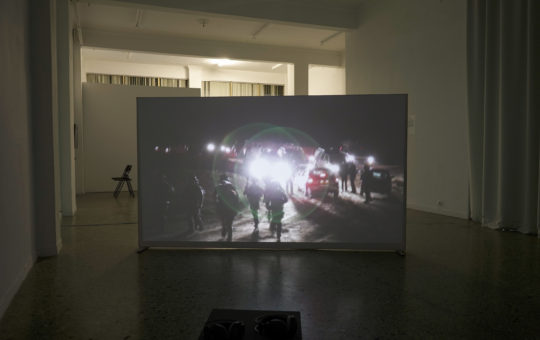
Xen(i)os – (2019-2021)
“Xen(i)os” was inaugurated in September 2019 with Forensic Architecture’s exhibition “Violence, Fast and Slow”.
The line of enquiry will be addressing the histories of hospitality and care in relationship to the multi-cultural policies that have defined the profile of the modern West. The thematic wishes to develop further the concept of hospitality in relationship to the Other. The title is addressing the problematics between the binary of guest-host, in a world that is becoming all the more xenophobic. The title further derives from the concept of “Xenios Zeus” one of the prefixes of god Zeus, famous in mythology for his hospitality, but also ironically echoes a governmental special operation of the same name, implemented in 2013 by the greek police. It was an operation that performed random checks on immigrants and refugees by arresting and detaining them to check their papers. During the same year a report by Human Rights Watch estimated 85.000 persons being stopped during the operation simply based on their appearance and skin colour, of which only 6% were illegally in Greece. The title of the program also refers and includes the word “xenos” that in greek means foreigner, the non-kin. The word has been also the title of the Greek translation of the seminal book of Albert Camus “L’etranger”, a book from which we will be drawing inspirations from. Looking into the concept of Greekness (and the questions that arise in contemporary Greece on who is the contemporary Greek) will also be another focus of this chapter with a public program announced early 2020.
With recent examples in Greece of anti-Semite MPs being appointed in government, or anti-muslim comments made by ministers of several parliamentary parties throughout the years, and a widened discriminative and racist discourse augmenting in public discourse, we feel the need as an art institution to provide a safe haven for democratic and inter-sectional ideas to all our audiences and to host artists and cultural practitioners that respect the values of inclusivity, equality and respectful co-existence.
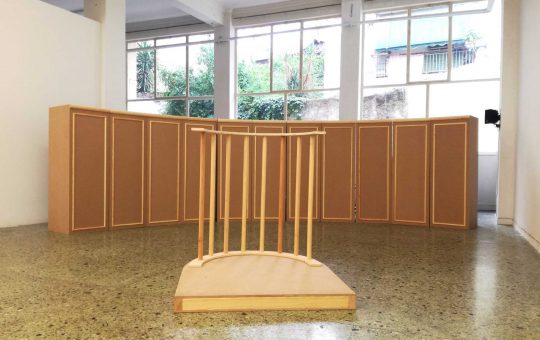
Department of Justice (2018 – 2020)
This exhibition chapter, supported by the FfAi, is delving into artistic and curatorial practices that investigate the scope of the judicial and research real events that have had societal impacts: court cases and political trials that changed the course of local histories, histories that have divided society or have been erased from the official narratives of the state. It also addresses major strands of political and social theory that propagate social inequalities, such as anti-feminist rhetorics. It further looks into historical periods that have produced particular marginalisation of populations adjacent to certain political positions, such as the anti-communist period that begun after the second World War, by exploring its effect on contemporary political thought, feminist struggles and society at large.
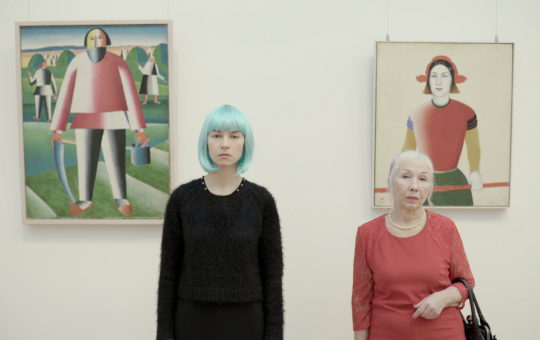
State Affairs (2017 – ongoing)
State Affairs is an exhibition chapter dedicated to artists that work with video and the moving image. It presents artistic practices that focus on thematics unfolding and narrated gradually through several artworks, practices distinguished for their interest in shedding light on historical conditions and how they affect contemporaneity. The practices selected for this exhibition chapter are characterized by an essayistic approach to issues that involve, racism, religion, futurism, post-colonial discourse, nationalism etc., at times blending, documentary, performance and the moving image. The programme aims to address directly current affairs, predicaments, problematics and cul-de-sacs of contemporary living, by at times, summoning the past.
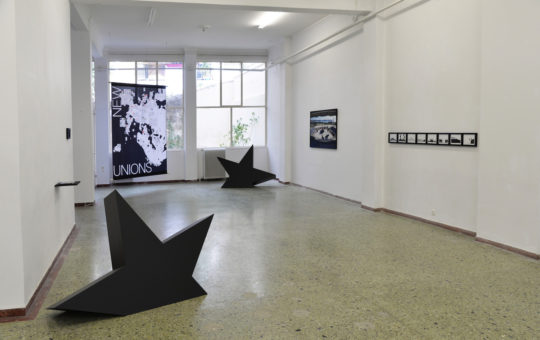
The European Condition (2015-2017)
In the current European reality, the concept of a European identity is vaguely defined and seems now almost irrelevant to its citizens. The union is in a condition described recently by Jean-Claude Juncker as “Europe in an existential crisis” and the rise of the far right has fortified the concept of the “nation-state”, making it the main vehicle for the far-right to attract voters and segregate communities within member states of the Union. In recent years, the voices that supported the “European ideal” have been, if not quieter, certainly more ambiguous. What is promoted as a common European direction is much less related to the 90s idea of a united Europe that propounded a common agenda of equal rights, freedom of speech, multi-nationality, multi-ethnicity and multi-religious populations. Today, its is rather a Europe consisting of countries that promote their own economic and social agendas, protect their interests and which now tolerates – if not promotes in certain cases – rhetoric of hate, division and closed borders. The exhibition chapter “European Condition” looked into aspects of citizenship, unionizing beyond borders, state propaganda and the role of religion in the formation of Europe.
Contact
State of Concept
Tousa Botsari 19, Athens
T: +30 2130 318576
E: [email protected]
Newsletter
To stay regularly updated on all State of Concept’s activities, please signup below.
